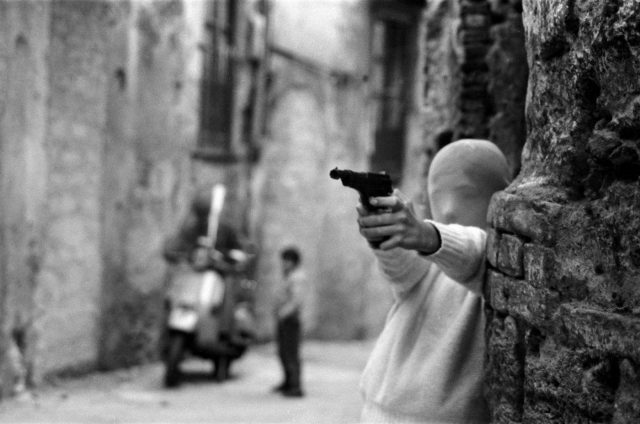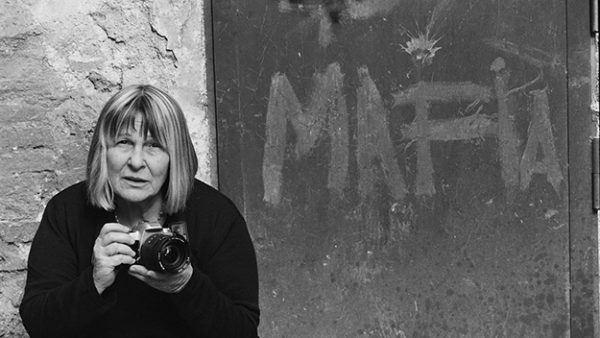
Letizia Battaglia’s stunning photographs of the Cosa Nostra are shown in Shooting the Mafia
SHOOTING THE MAFIA (Kim Longinotto, 2019)
Quad Cinema
34 West 13th St. between Fifth & Sixth Aves.
Through December 5
212-255-2243
quadcinema.com
Palermo native Letizia Battaglia took a major turn at the midpoint of her life, becoming a photojournalist at the age of forty, concentrating on brutal crime scenes often involving the Mafia. Now, at the age of eighty-four, her engrossing story is being told in the documentary Shooting the Mafia. The first female photographer to work for a daily Italian newspaper, Battaglia is a bold presence, dominating the screen, displaying a series of distinctive hair colors as she talks about her life and career, discussing her love affair with photography. “The camera changed my life. I began to find myself. Before that, I wasn’t a real person,” she tells director Kim Longinotto. But she wasn’t taking pictures of death for the thrill of it, or for sensationalism. She was determined to show everyone what was happening in Sicily, how the mob operated, leaving a bloody trail behind it as the police, the courts, and the local community looked away. “Photographing trauma is embarrassing. You love these people, but you have to take photos. I couldn’t tell them I was doing it with love,” she says while also explaining that people should not be ruled by fear.

The fearless Letizia Battaglia takes on the Palermo mob in Shooting the Mafia
At one point, in the town of Corleone, she sets up an outdoor exhibit of her black-and-white photos of Mafia killings and suspected Cosa Nostra leaders; showing such images in public breaks the code of silence and puts her own safety at risk as she receives death threats. She also enters politics as a Green Party councilor. “I wanted to build a better society,” she says. The latter parts of the film focus on the 1986-87 efforts of judges and prosecutors Giovanni Falcone and Paolo Borsellino as they arrest and try a huge group of mafiosos led by Luciano Liggio and Totò Riina. Longinotto (Gaea Girls, Runaway, Dreamcatcher) and editor Ollie Huddleston interweave new interviews with Battaglia, her assistant, Maria Chiara Di Trapani, Battaglia’s former lovers and fellow photographers Santi Caleca, Eduardo Rebulla, and Franco Zecchin, and her current partner, Roberto Timperi, with archival news reports, home movies, family photographs, and clips from Alberto Lattuada’s 1951 film about sin and redemption, Anna. Through it all are Battaglia herself and her stunning photos, haunting pictures that you can’t look away from. “I want to take away the beauty that others see in them,” she says. “I want to destroy them.” Thank goodness she didn’t.